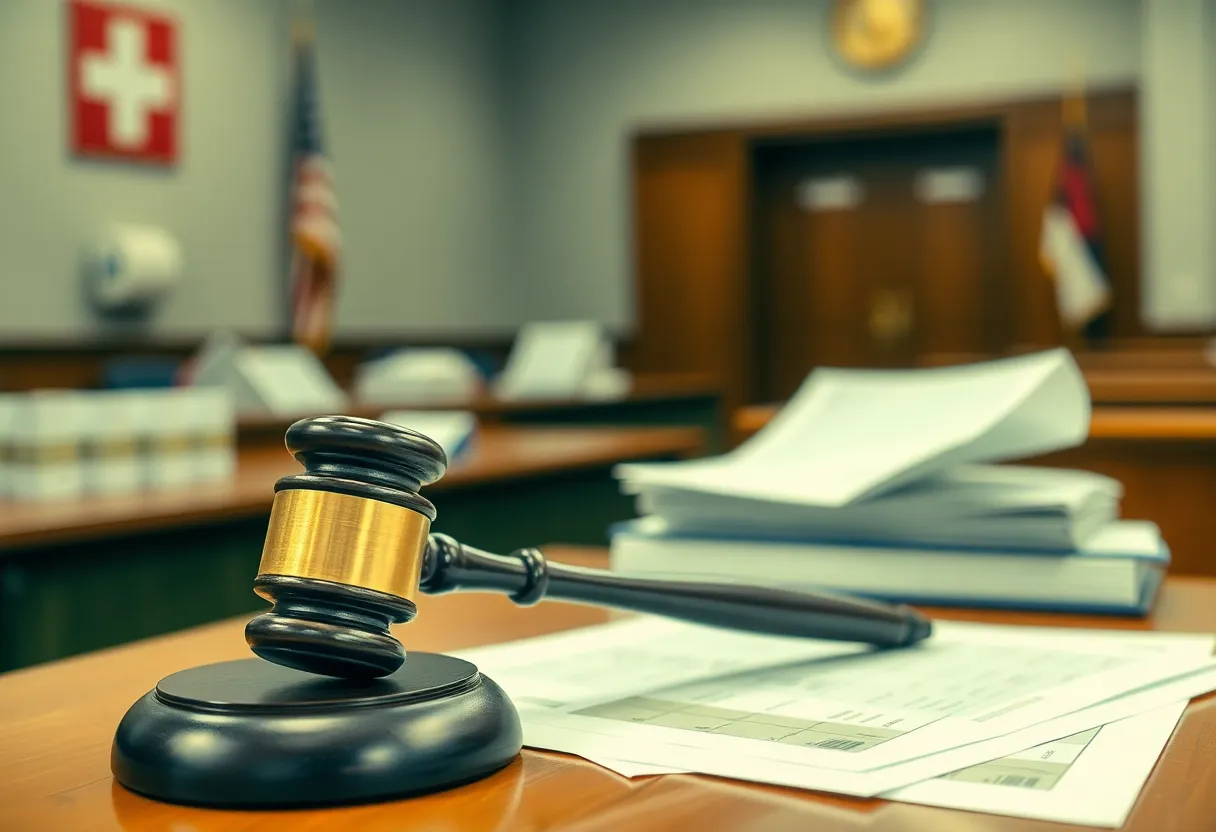News Summary
New York State is reviving a significant lawsuit against CVS Pharmacy, alleging illegal prescription practices under the federal 340B Drug Pricing Program. The U.S. Department of Justice claims CVS filled illegitimate prescriptions for controlled substances, contributing to the opioid crisis and compromising patient safety. CVS vehemently denies these allegations, asserting its compliance and commitment to pharmacy standards. With a whistleblower’s testimony and CVS’s actions to block risky prescriptions, this legal battle raises crucial questions about pharmacy practices and patient safety.
New York’s Legal Battle Against CVS Pharmacy Heats Up
In the bustling city of New York, the state government has re-entered the spotlight with a move to revive a significant lawsuit against CVS Pharmacy Inc. This lawsuit is tied to the federal 340B Drug Pricing Program, and the New York Supreme Court First Appellate Department is being asked to overturn a previous dismissal by a lower court. This legal tussle couldn’t come at a more critical time as CVS, the largest pharmacy chain in the nation with around 9,000 locations, faces increasing scrutiny from the U.S. Department of Justice (DOJ).
Allegations of Illegal Activity
The DOJ alleges that CVS has been filling illegal prescriptions and reaching out for reimbursements from federal health care programs. The core of the allegations points to CVS allegedly hiring some of the largest quantities of prescriptions for controlled substances that lacked a legitimate medical purpose. This means CVS might have been operating outside the ordinary practices expected of pharmacies.
Among the most disturbing claims is that CVS filled prescriptions for dangerously high amounts of opioids, as well as early refills for these powerful medications. The alleged misuse doesn’t stop there; CVS has also been cited for dispensing “trinity” prescriptions. These are dangerous combinations that include an opioid, a benzodiazepine, and a muscle relaxant, notorious for their association with drug abuse.
Ignoring Warning Signs?
The DOJ’s complaint paints a troubling picture, suggesting that CVS was not just unaware of these activities but may have willfully ignored strong evidence. This evidence includes internal reports and data generated by their own pharmacists, which pointed towards illicit practices taking place in their stores. The lawsuit claims that CVS had been filling an alarming amount of prescriptions from doctors connected to what many refer to as “pill mills.” These so-called pill mills are notorious for dispensing controlled substances without any real medical justification.
Profit Over Patient Safety?
Customers and health advocates may be shocked to learn that CVS’s corporate culture could allegedly have prioritized profit over the safety and well-being of patients. The DOJ argues that this profit-centric approach led to dangerous dispensing practices within their pharmacies. To add more fuel to the fire, it’s claimed that CVS exerted pressure on its pharmacists to fill prescriptions without thorough validation, creating a recipe for disaster.
A Whistleblower Steps Forward
In a twist of fate, a former employee, who has now become a whistleblower, claimed that she saw the unsafe practices firsthand. This whistleblower filed under the qui tam provisions of the False Claims Act, which allows individuals to bring attention to fraudulent activity against government programs. The courage to speak out may be pivotal in how this entire case unfolds.
CVS Responds to the Allegations
CVS has responded to the DOJ’s accusations by asserting that it has fully cooperated with the investigation for over four years and plans to fight the allegations seriously. The company argues that this lawsuit tries to impose an ever-changing standard on pharmacy practices that, according to them, isn’t well-supported by existing laws. They feel confident that many issues raised in the DOJ’s complaint do not align with any defined statutes or regulations.
Taking Steps to Block Dangerous Prescriptions
Looking to change its course, CVS Health has proactively created a program aimed at blocking prescriptions from certain prescribers that raise red flags. This initiative has seen over 1,250 practitioners being blocked from the pharmacy chain. Moreover, the DOJ highlighted that CVS’s staffing levels often hindered pharmacists from fulfilling their responsibilities effectively, contributing to the chaotic situation.
Impact on the Opioid Crisis
As the lawsuit unfolds, the implications could resonate far beyond the legal realm. The DOJ claims that CVS’s alleged actions may have even played a part in the opioid crisis, with tragic consequences including patients’ deaths from overdoses linked to illegal prescriptions filled at CVS. As the situation evolves, the emphasis on responsibility and safety in pharmacies has never been more critical.
With both sides dug in, it will be fascinating to see how this legal saga plays out and what it means for patients and pharmacies moving forward.
Deeper Dive: News & Info About This Topic
- Bloomberg Law: New York’s Legal Battle Against CVS Pharmacy
- Reuters: U.S. Accuses CVS of Filling Illegal Opioid Prescriptions
- USA Today: CVS Lawsuit Over Prescription Practices
- Wikipedia: Opioid Epidemic
- Encyclopedia Britannica: Drug Abuse

Author: STAFF HERE NEW YORK WRITER
The NEW YORK STAFF WRITER represents the experienced team at HERENewYork.com, your go-to source for actionable local news and information in New York, the five boroughs, and beyond. Specializing in "news you can use," we cover essential topics like product reviews for personal and business needs, local business directories, politics, real estate trends, neighborhood insights, and state news affecting the area—with deep expertise drawn from years of dedicated reporting and strong community input, including local press releases and business updates. We deliver top reporting on high-value events such as New York Fashion Week, Macy's Thanksgiving Day Parade, and Tribeca Film Festival. Our coverage extends to key organizations like the Greater New York Chamber of Commerce and United Way of New York, plus leading businesses in finance and media that power the local economy such as JPMorgan Chase, Goldman Sachs, and Bloomberg. As part of the broader HERE network, including HEREBuffalo.com, we provide comprehensive, credible insights into New York's dynamic landscape.





